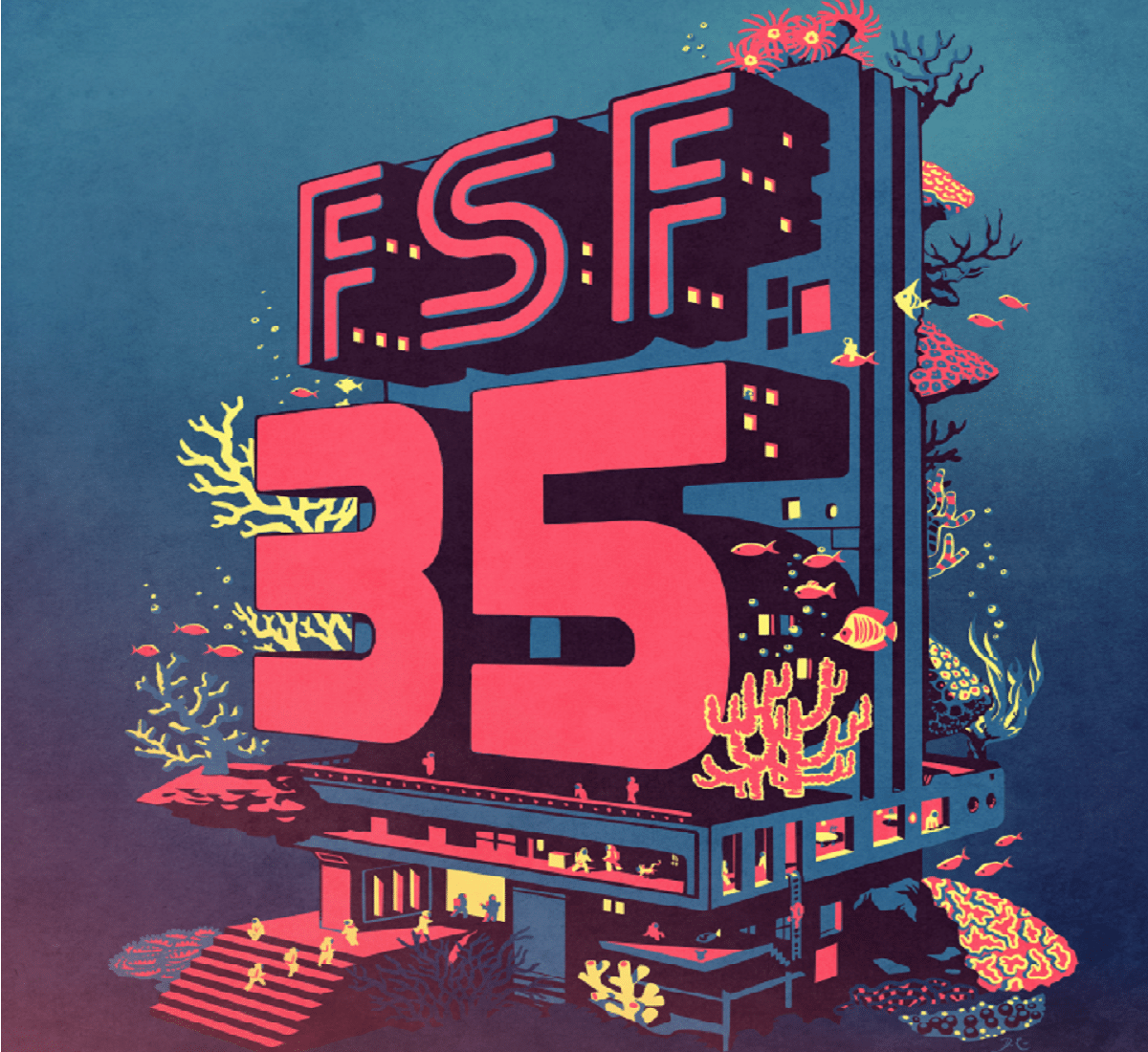
La Free Software Foundation celebrates its 35th anniversary. The celebration will take place in the form of an online event, what is programmed for October 9 (from 7 pm to 8 pm MSK).
Among the ways to celebrate the anniversary, too it is suggested to experiment with the installation of one of the GNU / Linux distributions completely free, try to master GNU Emacs, switch to free proprietary software counterparts, participate in the freejs promotion, or switch to using the F-Droid directory of Android applications.
Today, October 4, the Free Software Foundation (FSF) celebrates its XNUMXth year of fighting for software freedom. Our work isn't done until all computer users can perform all their digital tasks with complete freedom, whether it's on a desktop, laptop, or the computer in your pocket. The fight for free software continues and we would not be here without you.
To celebrate, we have a full week of announcements and surprises planned starting today, ending with an online anniversary event with live and pre-recorded segments this Friday, October 9, starting at 12:00 EDT (16:00 UTC). until 17:00 EDT (21:00 UTC). We would love for you to join in the celebration of this amazing community by submitting a short video (two minutes long) sharing your favorite memory of free software or the FSF, and a wish for the future of software freedom.
We will collect the videos throughout the week and broadcast a selection during the birthday event on October 9. Follow the instructions linked below on how to send the video successfully (and freely!) Via FTP.
If you can, make a donation of $ 35 or more to help keep the fight for user freedom for another 35 years, we'll send you a commemorative pin as featured in this blog post.
If you want to know more about the ad, you can check the details in the following link
A little about the Free Software Foundation
The Free Software Foundation was born in 1985, a year after Richard Stallman founded the GNU Project. As such, the organization was formed to protect itself against dubious companies caught up in code misappropriation and trying to sell some of the early GNU Project tools developed by Stallman and his associates.
Three years later, Stallman wrote the first version of the GPL, defining the legal framework for the free software distribution model.
Since then, he has continued with these activities, in addition to advocating for the free software movement. The FSF is also the administrator of several free software licenses, which means that it publishes them and has the ability to make revisions as needed.
FSF owns the copyright to many parts of the GNU system, like the GNU Compiler Collection. As the owner of these copyrights, you have the authority to enforce the copyleft requirements of the GNU General Public License (GPL) when a copyright infringement occurs in that software.
From 1991 to 2001, the application of the GPL was done informally, usually by Stallman himself, often with the assistance of FSF attorney Eben Moglen.
In the interest of promoting copyleft assertiveness by software companies to the level that the FSF was already doing, in 2004 Harald Welte launched gpl-violations.org.
Enforcement of the GPL and educational campaigns on GPL compliance were a main focus of FSF efforts from this period on.4
From 2003 to 2005, FSF held legal seminars to explain the GPL and the surrounding law. Usually taught by Bradley M. Kuhn and Daniel Ravicher, these seminars were the first effort to provide formal legal education on the GPL.
In 2007, the FSF published the third version of the GNU General Public License after a significant external contribution.7
On September 17 of last year, Stallman resigned as president from the Free Software Foundation and Jeffrey Knuth was elected two months ago.